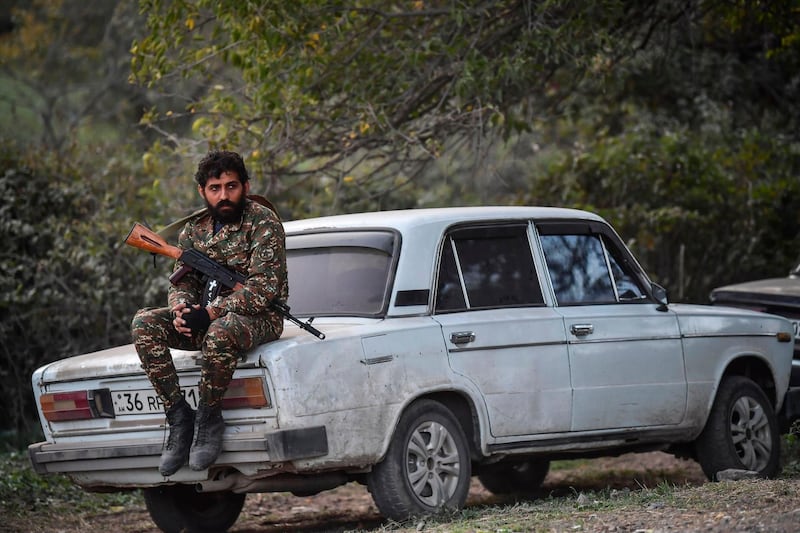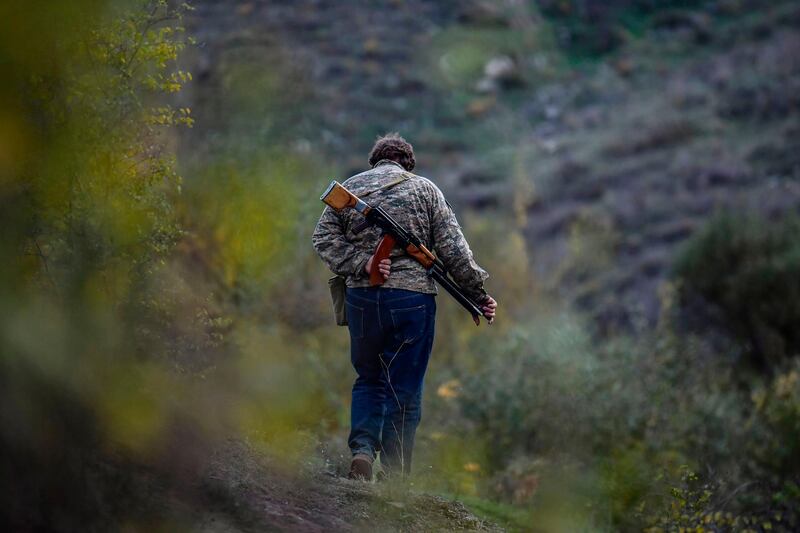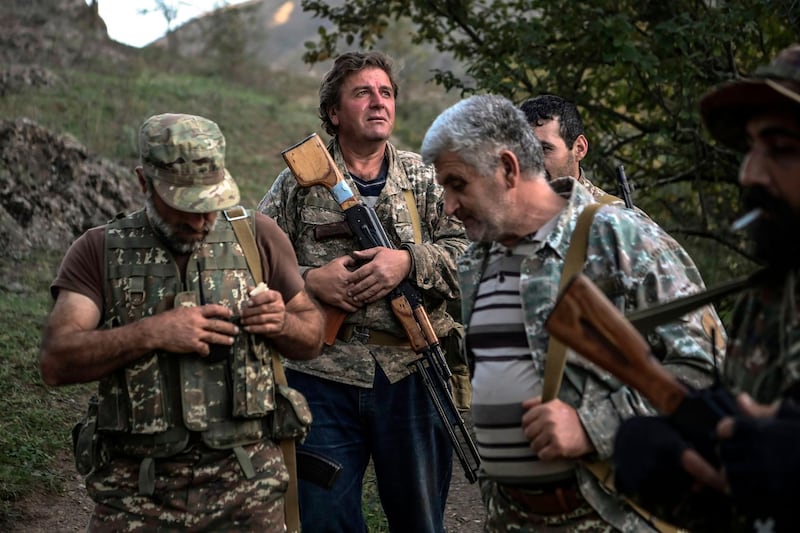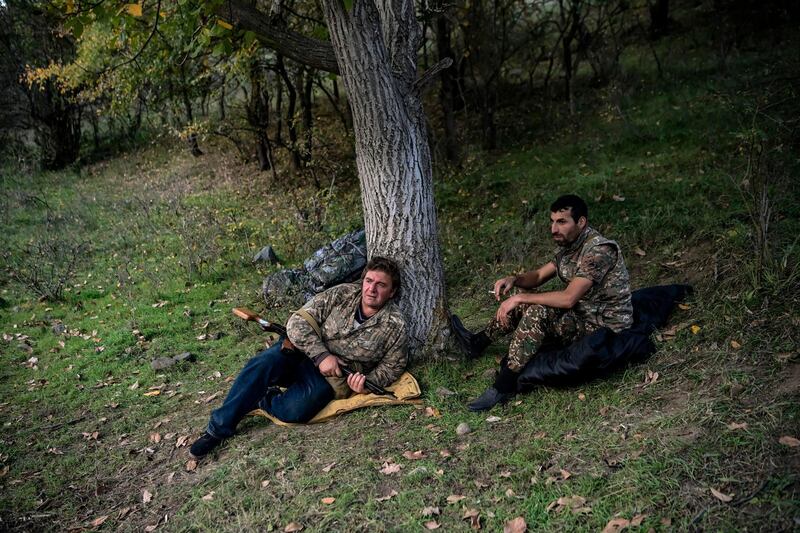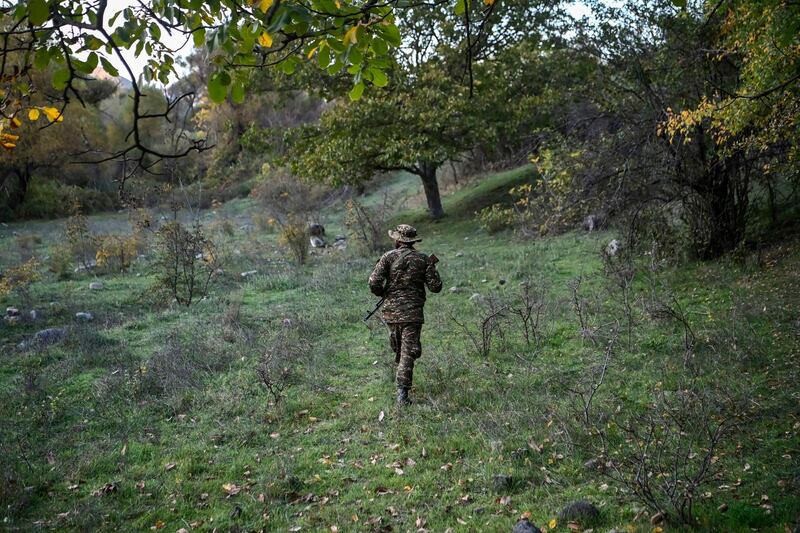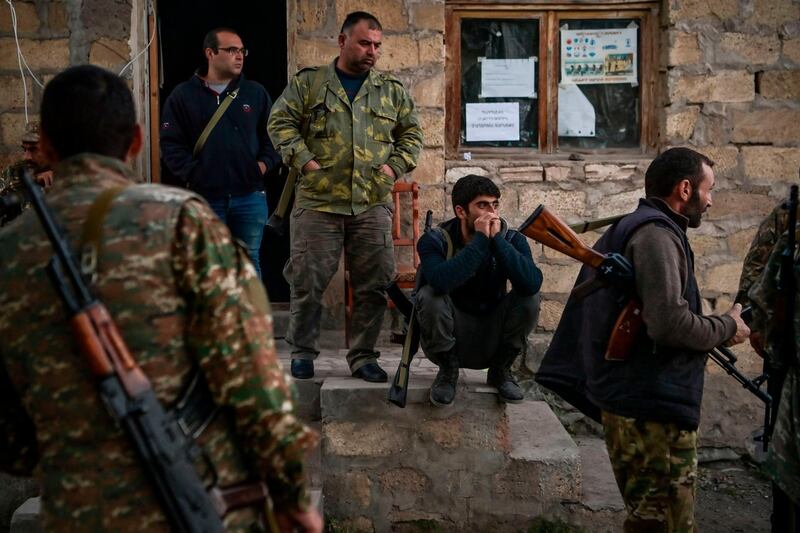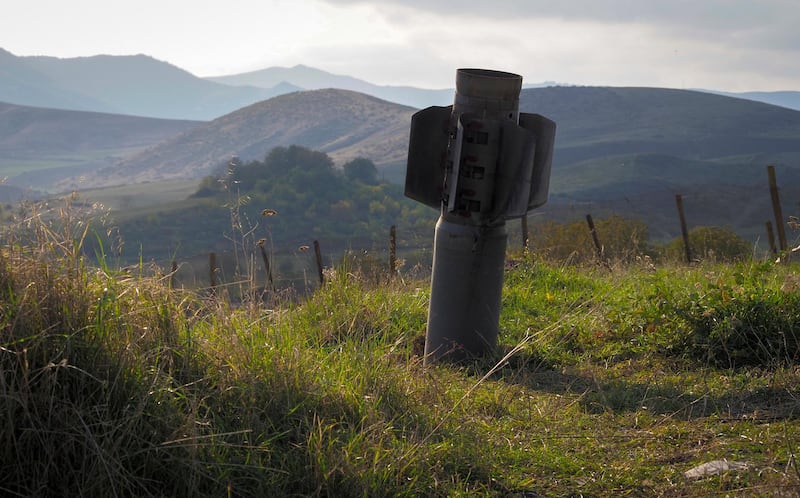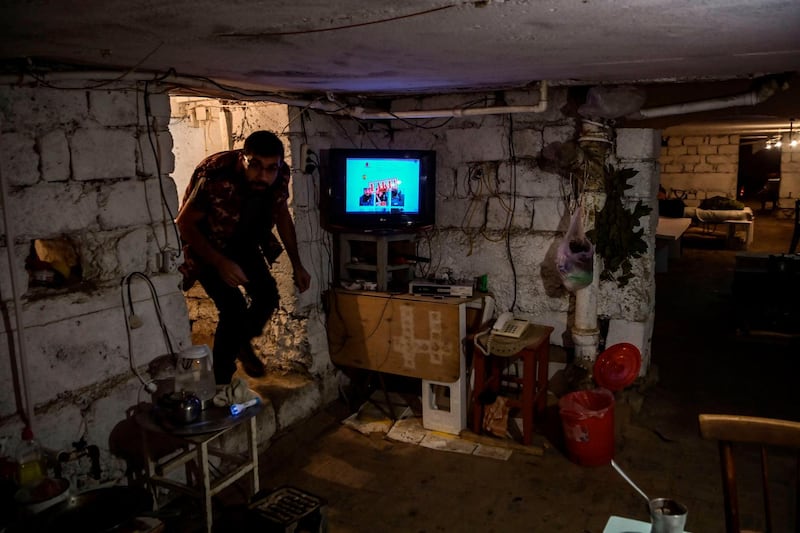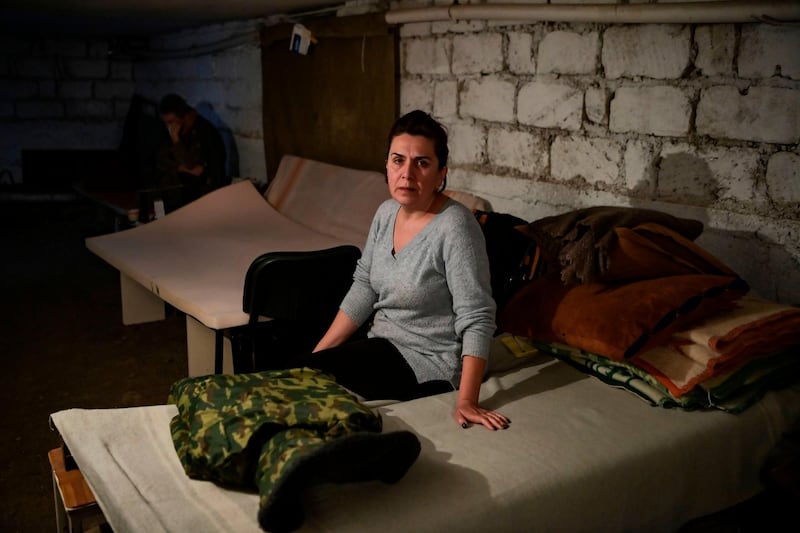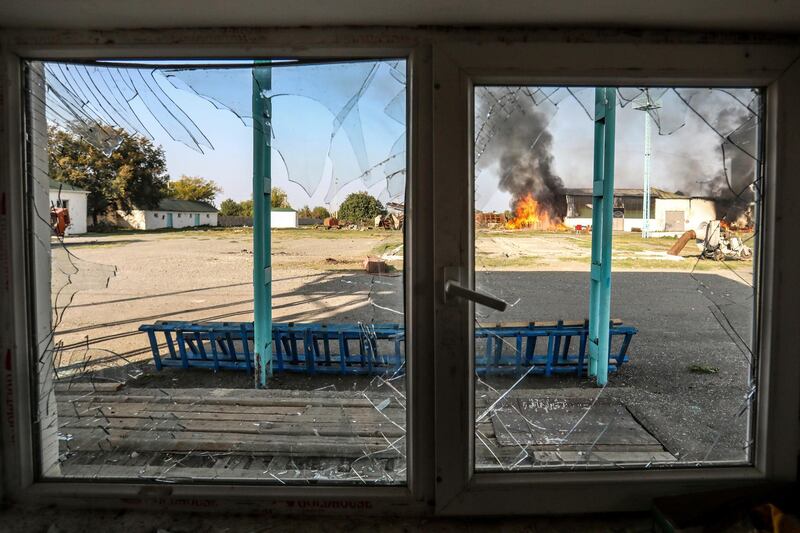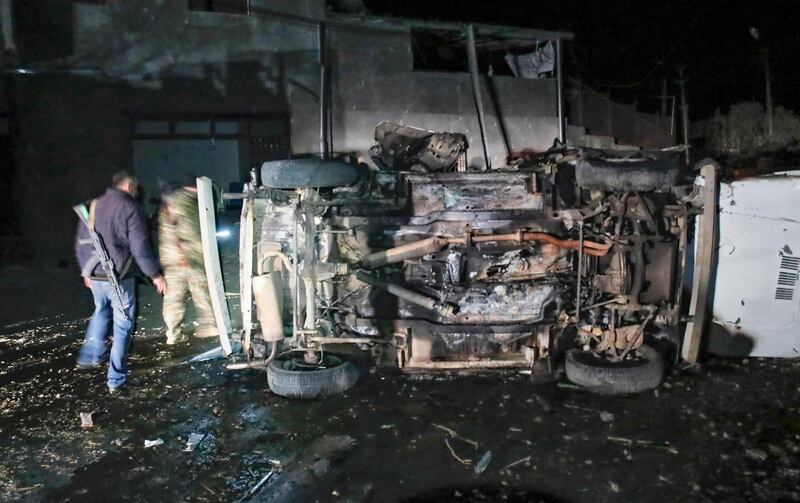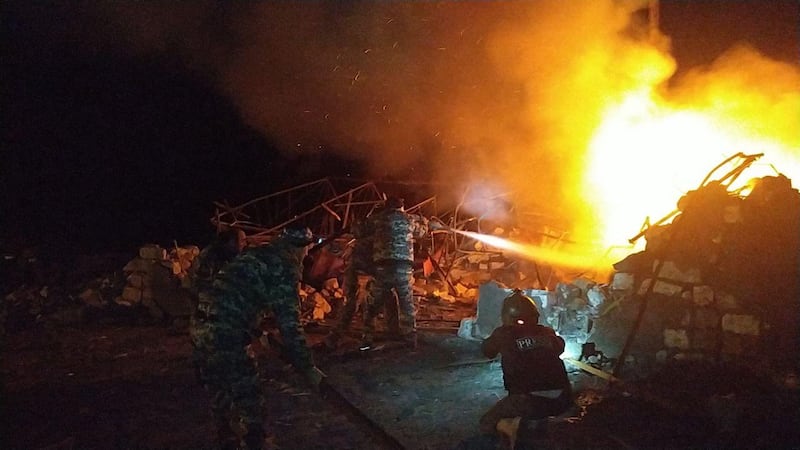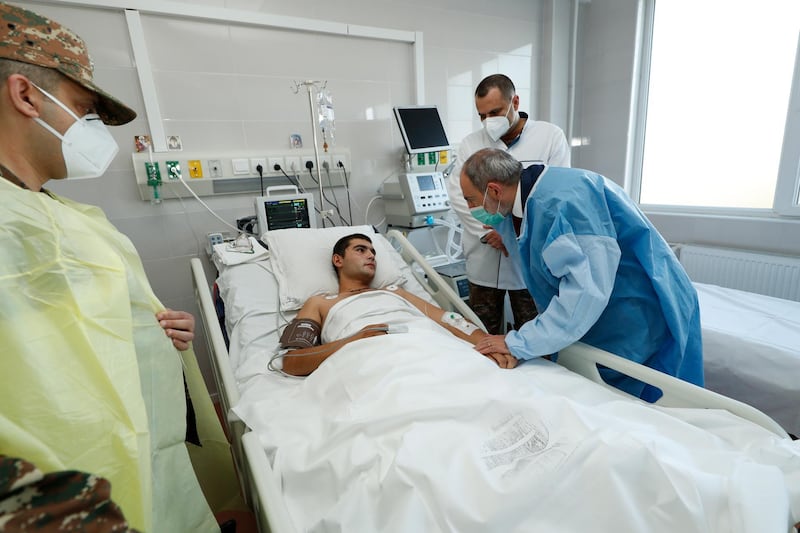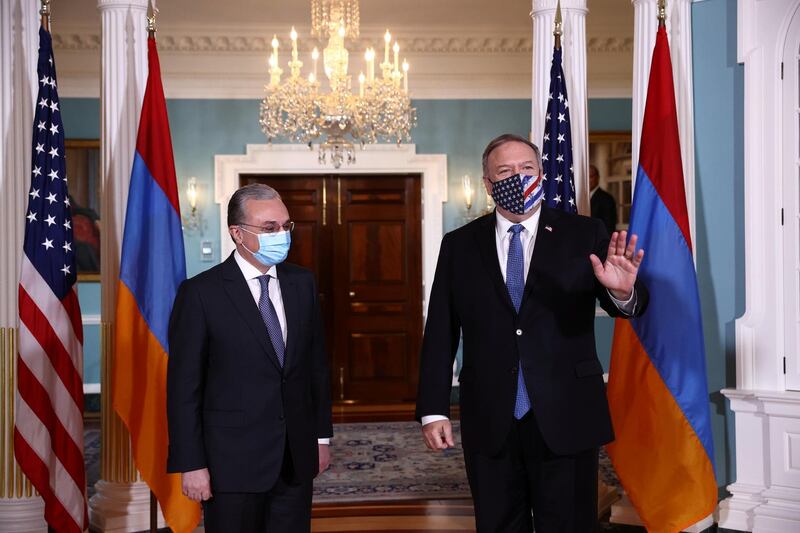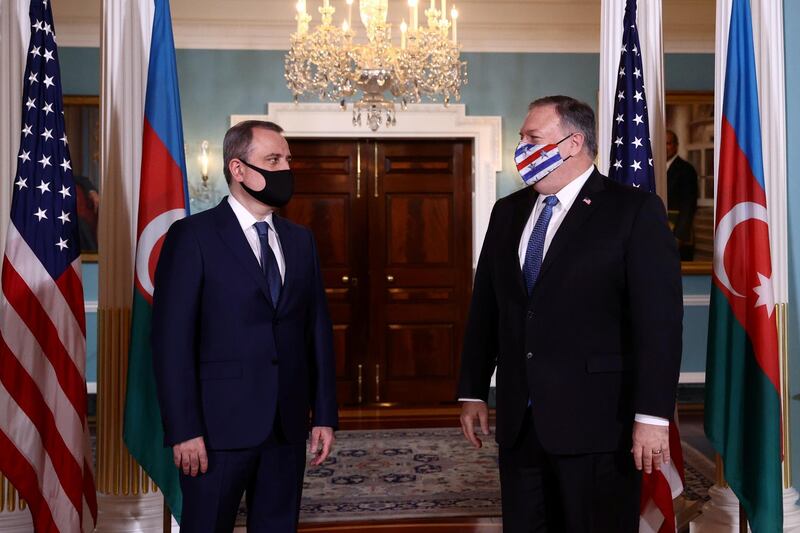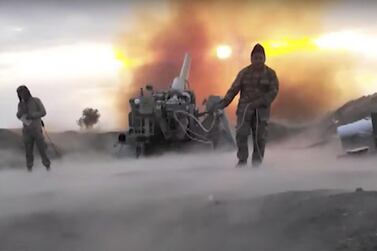New clashes broke out between Azerbaijan and ethnic Armenian forces over Nagorno-Karabakh a day after talks in Washington to try to end the deadliest fighting in the mountain enclave in more than a quarter of a century.
Azerbaijan's defence ministry reported fighting in and around Nagorno-Karabakh, a part of Azerbaijan populated and controlled by ethnic Armenians.
Local officials accused Azerbaijan's forces of shelling buildings in Stepanakert, the largest city in the region, which Baku denied.
US Secretary of State Mike Pompeo met separately with the foreign ministers of Azerbaijan and Armenia on Friday in a new attempt to end nearly a month of bloodshed that Russian President Vladimir Putin said may have killed 5,000 people.
The collapse of two Russia-brokered ceasefires had already dimmed the prospect of a quick end to fighting that broke out on September 27 over Nagorno-Karabakh.
Azeri forces say they have made territorial gains, including full control over the border with Iran, which Armenia denies. Nagorno-Karabakh's ethnic Armenian administration says its forces have repulsed attacks.
Both sides say they are ready to sit for talks but little diplomatic progress has been made and both say successful mediation is remote.
“We need peace, and it can only be reached through negotiation and talks,”
Armenian President Armen Sarkissian wrote in The National on Friday. "But this is what the Azerbaijani side rejects each and every time, for reasons that are horrific to the rest of us. They claim they have a legitimate right to use force – brutal, military force – against the Armenians living in Nagorno-Karabakh."
Azerbaijan’s President Ilham Aliyev told French newspaper Le Figaro that they were ready to sit down for negotiations but blamed Armenia's actions for the continued hostilities.
"We are ready to stop, even today," Mr Aliyev was quoted as saying. "But, unfortunately, Armenia grossly violated the ceasefire ... If they don't stop, we will go to the end with the aim of liberating all the occupied territories."
US President Donald Trump said "good progress" was being made on the issue but did not elaborate and declined to say if he had spoken with the leaders of either country.
Asked how his talks went, Armenian Foreign Minister Zohrab Mnatsakanyan told reporters "very good" as he exited the US State Department, and added that work on a ceasefire would continue.
World powers want to prevent a wider war that draws in more Turkish support – Ankara has voiced strong support for Azerbaijan and warned it could deploy soldiers to back its ally alongside the thousands of Syrian mercenaries it already has on the ground.
Shortly before the Washington talks, Turkish President Tayyip Erdogan told reporters in Istanbul that he hoped Moscow and Ankara could work together on resolving the conflict.
Differences over the conflict have further strained relations between Ankara and its Nato allies, with Mr Pompeo accusing Turkey of fuelling the conflict by arming the Azeri side. Ankara denies it has inflamed the conflict.
Mr Pompeo had said ahead of Friday's talks that he hoped the "right path forward" could be found.
But Armenian Prime Minister Nikol Pashinyan said he saw no diplomatic resolution of the conflict at this stage, and Mr Aliyev has described the prospects of a peace settlement as "very remote".
About 30,000 people were killed in a 1991-94 war over Nagorno-Karabakh. Armenians regard the enclave as part of their historic homeland; Azeris consider it illegally occupied land that must be returned to their control.
